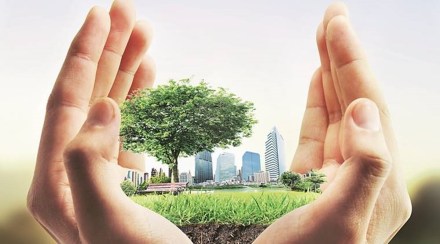Green buildings, although still in their initial phases, are gradually becoming popular in India. As per a CBRE report, the supply of green buildings has increased by 37% over the past 5 years in India. Though green-certified buildings comprise just 5% of India’s total real estate supply, the demand is on an upswing.
Gradually many Indians are now becoming more aware of the long-term sustainability of the environment and are willing to bear the incremental cost of green buildings. Moreover, despite larger upfront costs, green buildings can really result in cost optimization in the mid to long run. A green building can result in a 20-30% reduction in electricity bills. Likewise, it can result in a lowering of 30-50% of the cost of the water supply bills. This will eventually translate into cost recovery over a period of 5-7 years.
Such buildings can also ensure the well-being and better health of the inhabitants and are generally perceived to be more marketable than other projects. These factors are further resulting in increased interest in green buildings, both amongst developers and the homebuyer’s fraternity.
Also Read: 6 advantages of buying car insurance online
Real Estate is Integral in India’s ambition of achieving a net zero pathway
In India’s ambition of achieving a net zero pathway by 2050, real estate will play a pivotal role. Through reduced dependence on fossil fuels and a systematic pivot to renewable energy sources such as wind and solar, the Indian realty sector can be instrumental in lowering the overall carbon footprint.
Likewise, with the increased use of sustainable techniques such as green rooftops, natural ventilation & sunlight, waste treatment, etc., such buildings can ensure the overall health and wellness of the inhabitants. Green buildings can be helpful in water preservation as well. Adopting techniques such as rainwater harvesting, recycling & reuse of grey water, low-flow fixtures, and sensors to optimize water usage can be greatly helpful in reducing water wastage. Integrating such good plumbing practices across residential and commercial buildings will lead to water conservation, lowering of sewage waste alongside energy efficiency. By simultaneously reusing and conserving valuable resources such as water, we can bring overall social well-being.
Likewise, the increased adoption of recycled materials and non-toxic substances can further contribute to environmental safety and nurture better communities. Notably, the positive impacts of green buildings are not just restricted to themselves but the ramifications will be felt far and wide.
Mckinsey’s study has suggested that real estate is one of the key sources of greenhouse gas emissions. The sector contributes 39% of the total emission, out of which 11% emanates from the construction of building materials. Hence there is a pressing need for the sector to step up and embrace sustainable technologies and practices throughout the value chain.
The importance of green buildings further becomes important in the face of India’s unprecedented urbanization and the scorching pace at which the realty sector will grow in the foreseeable future. India’s massive population and expansive middle class will continue to push the demand for housing and commercial real estate. Hence, it is imperative that the industry should start adopting sustainable & resilient technologies across design, construction, and operation to ensure a better future.
Government Impetus
The governing agencies across the center and state governments have also rolled out some favorable policies to spur the adoption of green buildings and sustainable technologies in India. As per the GOI initiative, any residential, social, and institutional building can get a 30% refund on the price of the installation of solar panels. Likewise, certified buildings can claim 100% income tax depreciation on the cost of rainwater harvesting, solar panels, and waste management systems. There is a provision of low-interest loans for such building projects.
Similarly, many states are deploying policy impetus to boost sustainable technologies in Indian real estate. In the state of TN, the state government offers a 25% subsidy (up to INR 1 crore) for installing environmental protection infrastructure. The lucrative initiative covers industrial parks, industrial units, business parks, warehouses, etc. Other states also offer various subsidies and discounts to support the segment.
(By Gurmit Singh Arora, National President, Indian Plumbing Association. Views are personal)
